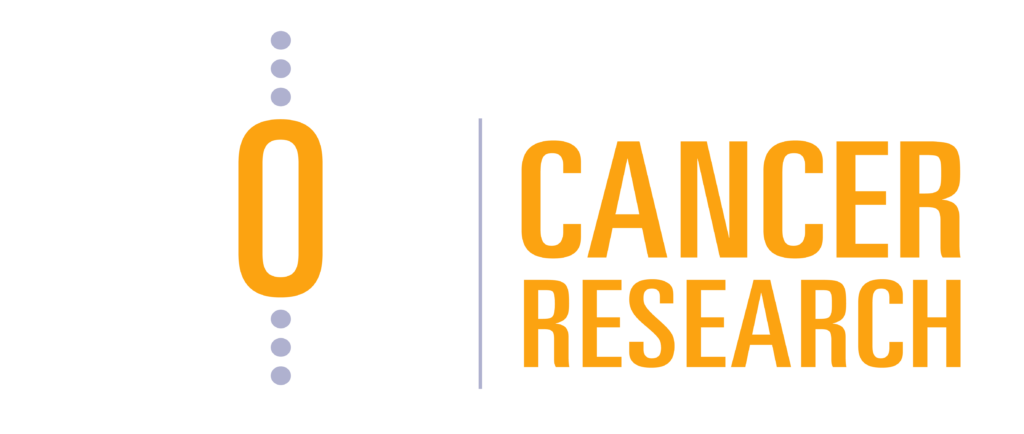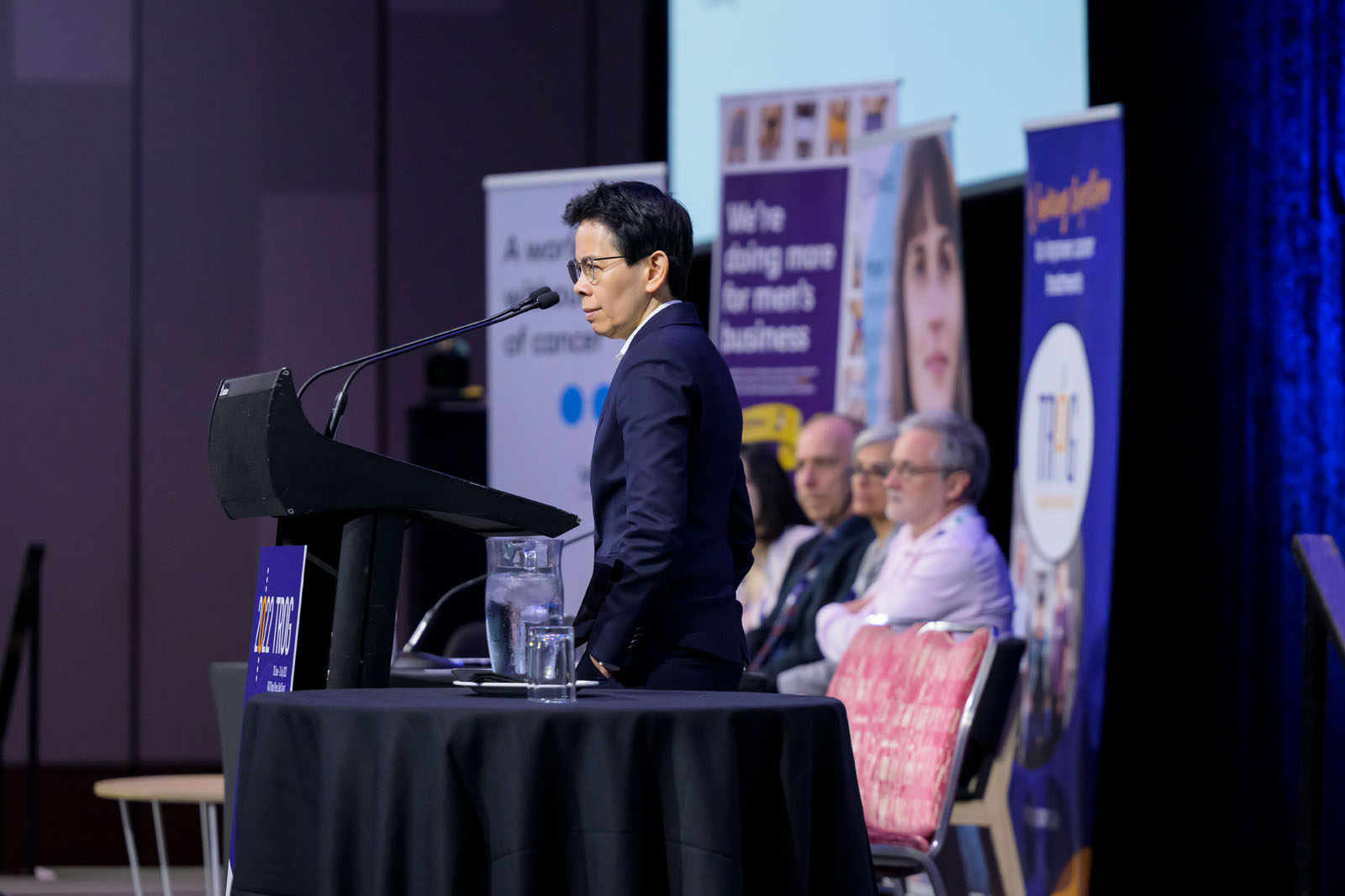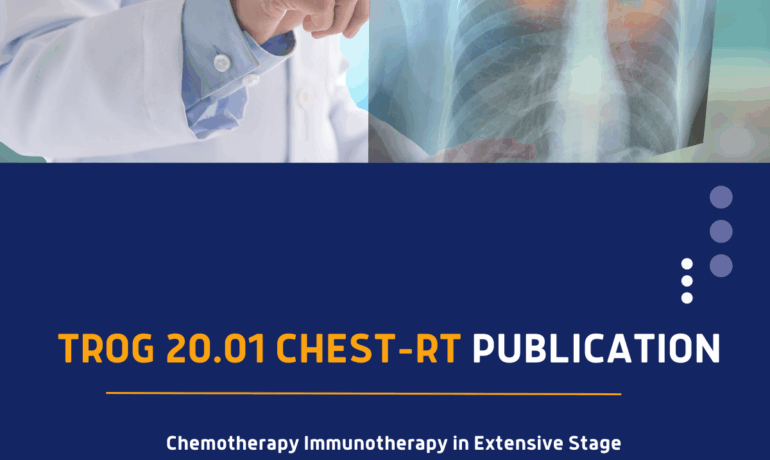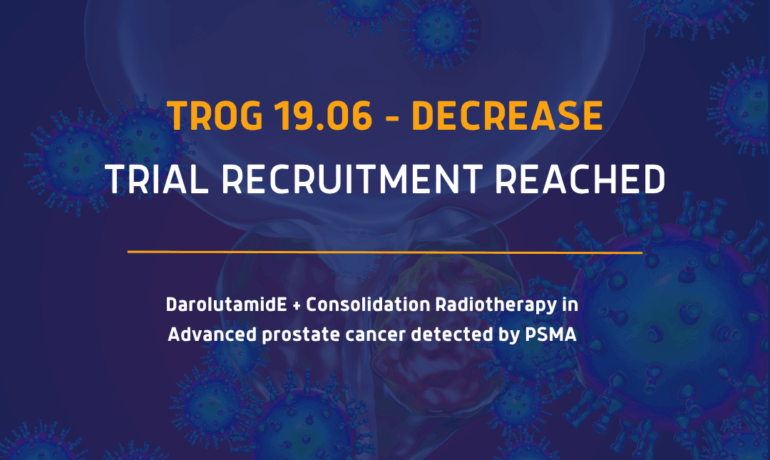Findings from the BIG 3-07/TROG 07.01 DCIS Trial (Radiation doses and fractionation schedules in non-low-risk ductal carcinoma in situ in the breast (BIG 3–07/TROG 07.01): a randomised, factorial, multicentre, open-label, phase 3 study) has been recognised on a global scale in leading medical journal, The Lancet.
You can read and access the full journal here.
Presenting treatment solutions that will make a global impact
Professor Boon Chua MB BS, PhD, FRANZCR, a world-renowned clinical and academic leader in cancer research and care, is Chief Investigator and Study Chair of the BIG 3-07/TROG 07.01 trial.
After 15 years of collaborating with researchers at 136 participating centres of six clinical trials organisations in 11 countries, Prof. Chua is grateful for the opportunities The Lancet have provided to share the study results with a global research and health community to improve outcomes of women diagnosed with ductal carcinoma in situ (DCIS) of the breast.
“DCIS is generally considered a form of non-invasive breast cancer, some of which could progress to become invasive cancer. It is a growing health issue since mammographic screening is widely available in many countries; today, it accounts for up to 25 per cent of new breast cancer diagnoses.
“However, in contrast to invasive breast cancer, there has been comparatively little research on DCIS. As a result, there are often uncertainties on how individual patients with DCIS may best be managed, especially to reduce the risk of their DCIS from becoming an invasive breast cancer.”
This research study focuses on improving treatments for women diagnosed with DCIS.
Radiation treatment of the whole breast after surgery for DCIS decreases the chances of developing further cancer in that breast. In the BIG 3-07/TROG 07.01 trial, the researchers tested whether additional doses of radiation, called a boost, given specifically to the part of the breast that had the DCIS within it improves the chances of not having the cancer come back in the breast. The researchers also tested the best number of radiation treatments to treat DCIS.
Women aged 18 years or older diagnosed with higher risk DCIS treated by breast-conserving surgery took part in the study.
TROG Cancer Research CEO, Susan Goode said “this trial showcases the benefits of an integrated health care, research, and education approach when seeking improved cancer treatments.”
“It goes without saying that the publication of this journal is a testament to the hard work, analysis, and coordination of the entire BIG 3-07/TROG 07.01 Trial team – led by leaders such as Prof. Boon Chua,” Susan said.
“This trial included 1,608 women from near and far corners of the globe, including Australia, New Zealand, Singapore, Canada, the Netherlands, Belgium, France, Switzerland, Italy, Ireland, and the UK.
“As TROG Cancer Research celebrates 15,000 trial participant recruitments this year – it’s remarkable to be able to say these women are a key part of us achieving that milestone.”
BIG 307/TROG 07.01 trial findings unveiled
The published article in The Lancet presents key findings from the BIG 3-07/TROG 07.01 trial.
A quick snapshot of these findings are as follows:
- Between June 25, 2007, and June 30, 2014, 1,608 patients were randomly assigned to have no boost (805 patients) or additional boost radiation (803 patients) after radiation treatment of the whole breast.
- 831 patients received 25 radiation treatments of the whole breast, and 777 patients received 16 radiation treatments of the whole breast.
- Median follow-up was 6·6 years.
- The 5-year free-from-local-recurrence rates were 92·7% (95% CI 90·6–94·4%) in the no-boost group and 97·1% (95·6–98·1%) in the boost group (hazard ratio 0·47; 0·31–0·72; p<0·001).
- The boost group had higher rates of grade 2 or higher breast pain (10% [8–12%] vs 14% [12–17%], p=0·003) and induration (6% [5–8%] vs 14% [11–16%], p<0·001).
- In patients with resected non-low-risk DCIS, a boost after whole breast irradiation reduced local recurrence with an increase in grade 2 or greater toxicity.
- There were no statistically significant differences in 5-year free-from-local-recurrence rates between patients who had 25 radiation treatments of the whole breast (94·4%) and patients who had 16 radiation treatments of the whole breast (93·7%).
- The results provide the first randomised trial data to support the use of boost radiation after postoperative whole breast irradiation, and the shorter course (16 treatments) of whole breast irradiation in patients with non-low-risk DCIS to improve the balance of cancer control, treatment toxicity, and socio-economic burdens of treatment. The international scale of the study supports the generalisability of the results.
This global study led by TROG Cancer Research is possible thanks to our collaboration with the Breast International Group’s (BIG) network of breast cancer research groups, which have been instrumental in the successful conduct of this high quality landmark trial.
This trial was supported by funding from the Australian National Health and Medical Research Council, Susan G. Komen for the Cure®, Breast Cancer Now, OncoSuisse Swiss Federation Against Cancer, Dutch Cancer Society and Canadian Cancer Society.
Related Post
New paper outlines protocol for important TROG 20.01 CHEST-RT lung cancer trial
TRIAL UPDATE: 15 July 2025 The TROG 20.01 CHEST-RT
Recruitment Milestone Achieved for TROG 19.06 DECREASE Trial
TRIAL UPDATE: 8 July 2025 The TROG 19.06 DECREASE
